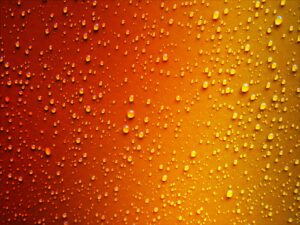21/12/2023
Last week brought an end to German court proceedings between Riegele Brewery and Paulaner brewery over the name “Spezi”. The parties had been due to go head to head in an appeal before the Munich Higher Regional Court, before Riegele decided to withdraw its appeal.
What is Spezi?
Spezi is a non-alcoholic drink which combines cola and orange soda. The drink is popular in Germany, particularly in Bavaria, and has grown somewhat of a cult status.
Spezi, a pre-made bottled combination of cola and orange soda, was invented by Riegele brewery back in the early 1950s. Riegele first applied for a German trade mark for the word “Spezi” in 1955, covering “beer”. This was followed, in 1961, by an International Registration for the mark “Spezi” covering “non-alcoholic drinks”. This International Registration is still in force today and covers many European countries, including Germany, Switzerland, France and Italy. Since then, Riegele has protected the mark “Spezi” in both word and logo forms for non-alcoholic drinks across many countries, including under an EU-wide trade mark.
Examples of Reigele’s trade mark rights in Europe are set out below:
| Trade Mark Registration | Trade Mark | Goods covered | Register link |
| EU Trade Mark No. 011727666 | Spezi | Inter Alia: Class 32: mixed cola beverages; De-alcoholised beverages and mixed beverages | 011727666 |
| EU Trade Mark No. 001824994 | Spezi logo | Class 32: Non-alcoholic beverages, lemonades, mineral water, non-alcoholic cola beverages. | 001824994 |
| German Trade Mark No. 39401063 | Spezi | Inter Alia: Class 32: alkoholfreie Getränke, Cola-Mischgetränke Class 32: soft drinks, cola mixed drinks | 39401063 |
| German Trade Mark No. 39636636 | Spezi logo | Class 32: Alkoholfreie Getränke, Limonaden, Mineralwässer, colahaltige alkoholfreie Getränke Class 32: Soft drinks, lemonades, mineral waters, non-alcoholic drinks containing cola | 39636636 |

How did Riegele and Paulaner end up in dispute?
Paulaner brewery, part of the Schörghuber Group, makes its own version of a pre-made bottled mix of cola and orange soda. Paulaner’s version of the drink is also sold under the trade mark “Spezi”.
Examples of Paulaner’s IP rights and products in Europe are set out below. Whilst Paulaner has trade mark protection for the colours that appear on the labels of its Spezi product, it does not own any registered trade marks that include the word “Spezi”.

This coincidence in the Spezi name seemingly dates back to at least the early 1970s.In a 1974 agreement Riegele permitted Paulaner to use the trade mark “Spezi” for Paulaner’s version of the drink for the cost of 10,000 Deutsche Marks (around 4,400 GBP or 5,000 EUR). Paulaner’s version of the drink has been successful, with Paulaner saying that around 90,000,000 litres of its Spezi drink are sold each year. And the success appears only to have increased in recent years, with Schörghuber Group’s report on the 2021 financial year stating that sales of its Paulaner Spezi were up by 35.7 percent. The magazine Focus reports a value of 50 million EUR.
The 1974 agreement was the focal point of the dispute that was brought before the German courts.
The dispute before the German courts
Riegele, given the success of Paulaner’s Spezi drink, terminated the 1974 agreement and sought an updated licence agreement which would allow Paulaner to keep using the Spezi name but in exchange for a more substantial sum which reflected the sales of Paulaner’s Spezi drink. A new licence fee was calculated to be around 5 million EUR per year based on Paulaner’s sales of Spezi; a vastly different amount to the one-time payment of 10,000 Deutsche Marks made in 1974.
However, Paulaner viewed Riegele’s termination of the 1974 agreement as unjustified and argued that the agreement was a co-existence or demarcation agreement, and not a licence agreement as Riegele argued. Paulaner therefore brought a case before the Munich Regional Court, seeking a decision upholding the validity of the 1974 agreement.
In October 2022, the Munich Regional Court sided with Paulaner and held that the 1974 agreement was a co-existence or demarcation agreement and Riegele was not justified in terminating it (without cause). Further, Paulaner had relied on the 1974 agreement and invested substantially in its Paulaner Spezi. The Landgericht’s announcement can be found here.
Riegele appealed the decision of the Munich Regional Court, but Riegele’s withdrawal of the appeal last week, following a hearing in the appeal, signifies the end of the proceedings.
Whilst Riegele may be of the view that it should receive some form of continuous or more substantial payment from Paulaner for use of the Spezi name – Riegele will spend considerable amounts to maintain trade mark protection for the trade mark “Spezi” – the decision by the Munich Regional Court shows that when reaching an agreement, due consideration should be given to termination clauses and provisions which allow the parties to take account of changing commercial landscapes.
We are looking forward to the publication of the Oberlandesgericht’s announcement here.
Our team at Reddie & Grose has extensive experience of registering and enforcing trade mark rights around the world regardless of the size of the business. We make best use of our established relationships with leading attorneys in all countries with trade mark systems. You can be confident that we will present your case in the best way to obtain a favourable outcome. Get in touch for further information about our services and to organise a free initial consultation.
This article is for general information only. Its content is not a statement of the law on any subject and does not constitute advice. Please contact Reddie & Grose LLP for advice before taking any action in reliance on it.




